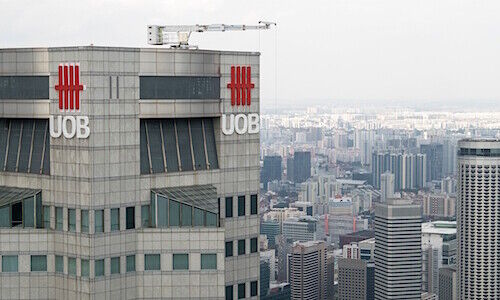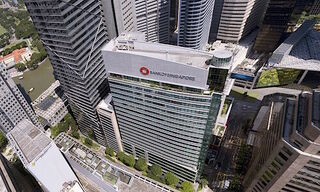Singapore-based UOB’s profit in the first six months of the year was flat as higher fee income offset lower interest income.
UOB posted a net profit of S$2.9 billion ($2.2 billion) in the first half of 2024, according to the bank's financial results, which was flat compared to the same period in 2023.
Total income was stable at S$7 billion (1 percent decrease year-on-year) as a 2 percent fall in net interest income to S$4.8 billion and an 9 percent drop in other non-interest income to S$1 billion was partly offset by an 11 percent increase in fee income to S$1.2 billion.
Expenses were also stable at S$2.9 billion, down 1 percent. Allowance for credit and other losses were 26 percent lower at S$395 million.
Wealth Management
Within the bank’s wealth management business income rose 40 percent in the second quarter due to improved sales in structured notes, bonds and unit trusts as well as steady growth in bancassurance.
Positive net new money inflows contributed to assets under management from affluent customers increasing 10 percent to S$182 billion.
Integration Progress
UOB is also making continued progress on its integration with Citi’s consumer business in Indonesia, Malaysia, Thailand and Vietnam after announcing the acquisition in 2022. The cost of integration in the first half fell 10 percent to S$143 million and further reduction is expected.
«We have successfully integrated operations in Malaysia, Indonesia and Thailand, and the one-time costs will be reduced substantially as we move towards integration in Vietnam next year,» commented UOB deputy chairman and CEO Wee Ee Cheong.
«We will focus on extracting both revenue and cost synergies from this portfolio as we deepen our customer relationship and provide our customers with a more comprehensive suite of solutions, including wealth management.»
ASEAN Outlook
Wee was also positive about the outlook in Southeast Asia which accounts for the majority of UOB’s profits.
«Global growth continues to be weighed down by geopolitical tensions and higher interest rates,» he said.
«However, we expect ASEAN to stay relatively resilient. We are optimistic about the region’s long-term potential, backed by robust fundamentals and foreign direct investments inflows as companies diversify their supply chains. With our enlarged customer franchise and strengthened market position, we are well-placed to seize opportunities in the region.»

























